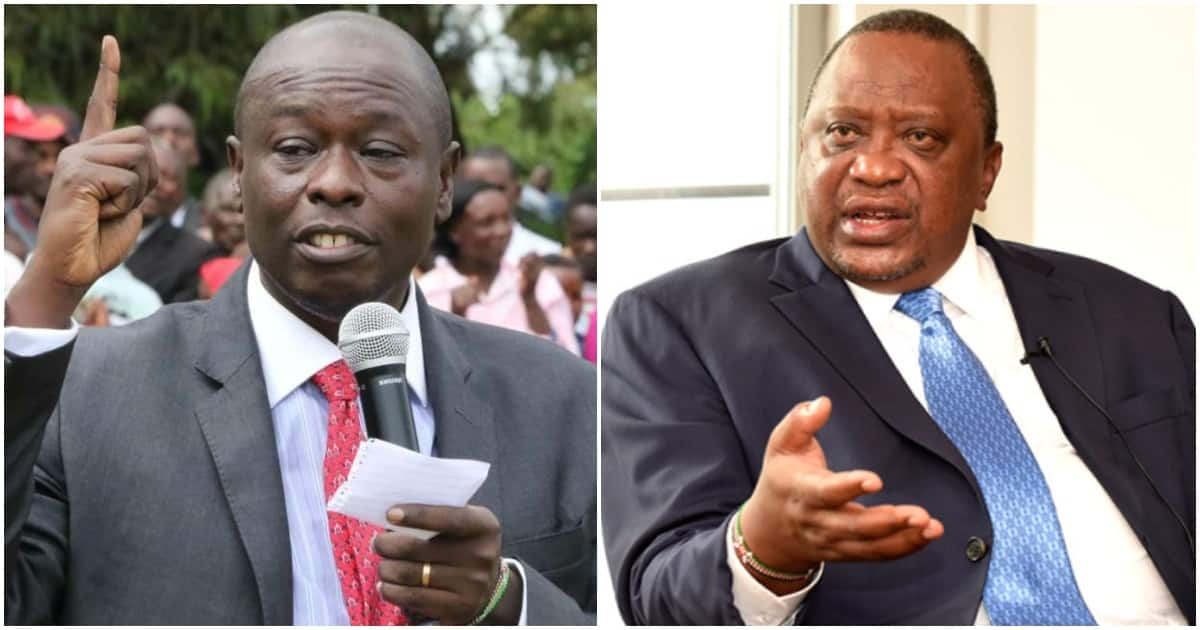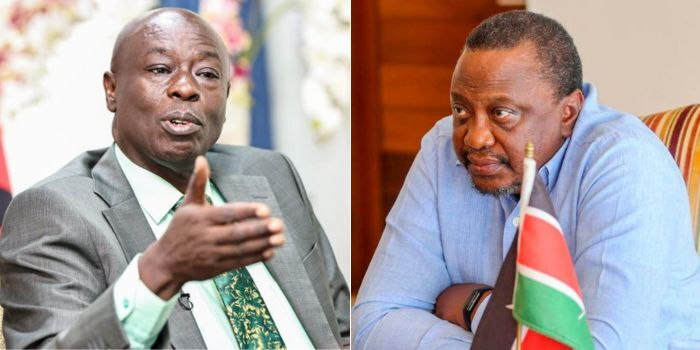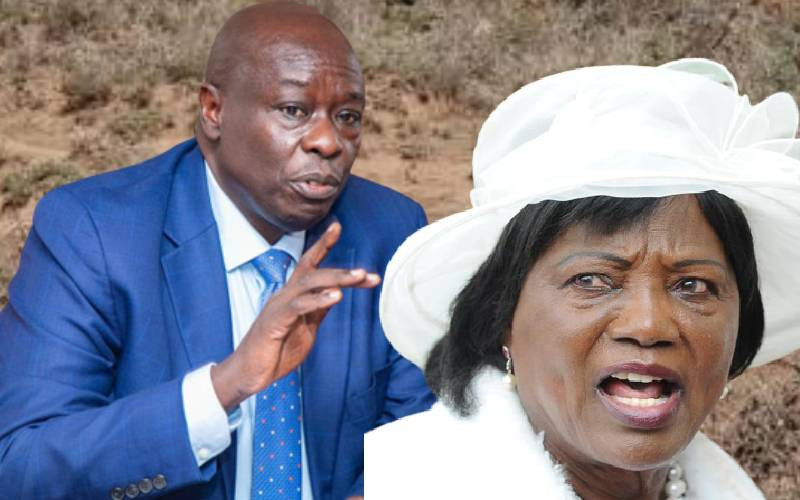Deputy President Rigathi Gachagua’s recent overtures towards the influential Kenyatta family have set off ripples across the political landscape of the Mount Kenya region.
Beneath the surface of this unexpected move lies a complex web of strategic maneuvers and calculated alliances, as Gachagua navigates the intricate dynamics of regional politics in anticipation of the 2027 elections.
Political analysts offer divergent views on Gachagua’s motivations, presenting contrasting perspectives on the significance and implications of his gestures towards the Kenyattas.
While some perceive his actions as a tactical maneuver aimed at fostering unity within the Mount Kenya region, others speculate about underlying motives driven by self-preservation and ambitions beyond the 2027 elections.

Supporters of Gachagua argue that his quest for reconciliation with the Kenyattas springs from a genuine desire to consolidate support and present a unified front against potential challenges posed by William Ruto’s ambitions for the 2027 elections. They contend that by aligning himself with the Kenyatta family, Gachagua seeks to position himself as the preferred choice for a deputy should Ruto opt for a candidate outside Nyeri County.
Conversely, skeptics suggest that Gachagua’s conciliatory gestures towards the Kenyattas are rooted more in pragmatic considerations than genuine reconciliation.
They view his apologies to Mama Ngina Kenyatta and the family as calculated moves aimed at preempting potential backlash and solidifying his political standing.
During an interview with Kameme FM, Gachagua signaled a significant shift in the political narrative of the region, expressing remorse for past disrespectful behavior towards Mama Ngina Kenyatta during the heightened political activities of the last general election.
He acknowledged the regrettable lack of respect and extended a humble request for forgiveness.

The Kenyatta family has faced intense scrutiny and criticism in recent times, including incidents such as the raid on Northland City and complaints by former President Uhuru Kenyatta about a raid at his son’s house.
The family’s financial affairs have also come under scrutiny, with demands for audits and investigations into tax exemptions and property ownership.
Jubilee Secretary General Jeremiah Kioni questioned the sincerity of Gachagua’s apology, suggesting that it might be driven more by self-interest than genuine remorse.
He emphasized the need for a public apology and called upon other politicians who made disparaging remarks about the Kenyatta family to follow suit.
Public Service Cabinet Secretary Moses Kuria commended Gachagua for his reconciliation efforts, noting the importance of unity and forgiveness.
He highlighted his own initiatives to reach out to opposition figures like Raila Odinga as part of a broader effort to promote reconciliation.

Thuo Mathenge, leader of the New Democrats party, sees Gachagua’s outreach to former Kenyatta allies and the Mount Kenya community as a strategic move to solidify support and neutralize potential adversaries. He believes that embracing leaders from different factions within the region is a commendable step towards unity.
However, political analyst Albert Kasembeli warns that Gachagua’s overtures towards the Kenyattas may backfire if the family decides to deploy its influence against him.
He emphasizes the importance of regional unity in shaping Kenya’s political landscape and cautions against underestimating the impact of the Kenyatta family’s network.
Senator John Methu asserts the benefits of embracing unity within the Mount Kenya region, citing examples of successful collaborations between Kenya Kwanza and Azimio leaders.
He underscores the positive outcomes achievable through forgiveness and reconciliation.

JKUAT lecturer Charles Mwangi sees Gachagua’s engagement with the Kenyatta family as a strategic move to leverage their social and political capital. He believes that aligning himself with the Kenyattas will enhance Gachagua’s influence and bargaining power within the region.
Despite potential opposition from some quarters, including figures like Musalia Mudavadi, Gachagua’s efforts to cultivate alliances within the Mount Kenya region signal his determination to consolidate power and influence.
Aligning with the Kenyattas offers him access to a powerful network that could shape his political fortunes in the lead-up to the next election.
The call for reconciliation between President Uhuru Kenyatta and Deputy President Rigathi Gachagua by the Kikuyu Council of Elders reflects a broader desire for harmony and cohesion within the community.
As the political landscape continues to evolve, Gachagua’s approach to reconciliation with the Kenyatta family will undoubtedly remain a topic of intense scrutiny and debate.







More Stories
Nairobi Environment Chief Honored by International Police Organization for Stewardship
St. George’s University Celebrates Over 1,035 Residency Matches in 2025, Continuing Reign as Top U.S. Doctor Producer
Why Your Title Deed Matters: Optiven’s Guide to Securing Land Ownership